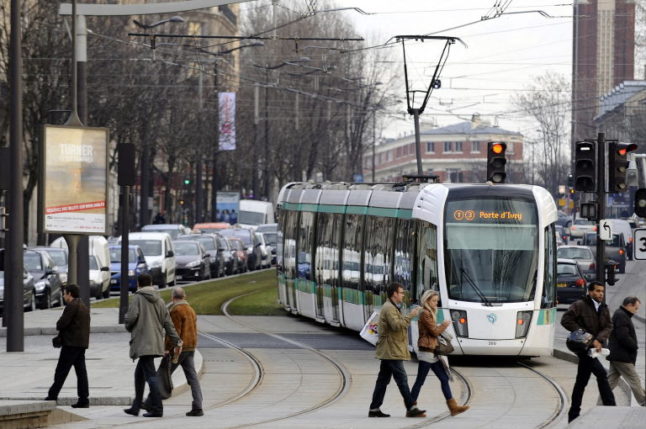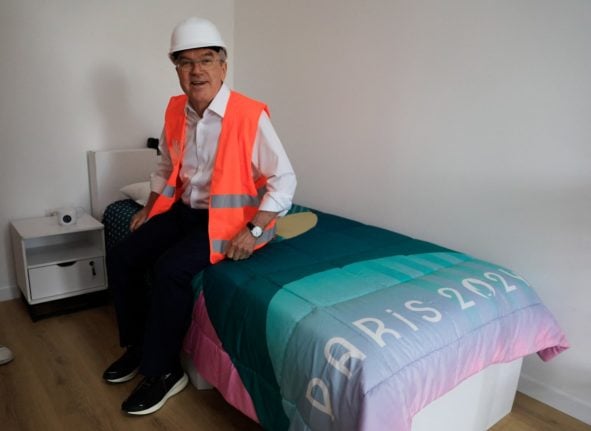Paris Police Prefect Laurent Nuñez on Friday unveiled security measures for the opening ceremony of the Olympic Games – including public transport changes.
Opening ceremony
Most of the transport disruption is linked to the ambitious opening ceremony on July 26th – with closures starting in the days leading up to the ceremony and stations re-opening either after the ceremony ends on Friday night or on the following Saturday morning.
These closures affect the ‘protection perimeter’ or the enhanced security zone along the riverbanks that form the route of the opening ceremony.
“All Metro stations leading into the protection perimeter will be closed from July 18th”, Nuñez revealed in a press conference devoted to the police and military arrangements in place for the grand ceremony.
“If you set up a watertight perimeter, but allow people to take the Metro and go back up in the middle of this perimeter, it’s no longer watertight,” he added.
READ ALSO How to check for Paris Olympics disruption in your area
With the exception of Saint-Michel on the RER C line, all Metro and RER stations within the anti-terrorist protection perimeter will be closed eight days before the event, during which time authorities will be clearing the river, until after the opening ceremony on the Seine.
The various closures will have no impact on the operation of the lines, which will continue to run, as the Paris Police Prefect emphasised, they just won’t stop at those particular stations.
The 15 stations that will be closed are:
- Alma Marceau (line 9)
- Champs-Élysées Clémenceau (lines 1 and 13)
- Cité (4)
- Concorde (1, 8, 12)
- Iéna (9)
- Javel (10)
- Passy (6)
- Quai de la Râpée (5)
- Trocadéro (6, 9)
- Tuileries (1)
- Champs-Élysées Clémenceau (RER C)
- Musée d’Orsay (RER C)
- Pont de l’Alma (RER C)
- Trains on Line 7 will pass under the Seine without passengers between Châtelet (including line 11), Pont Marie, Pont Neuf and Sully Morland stations.
Buses are also affected.
“On the day of the ceremony, no buses will be allowed to circulate within the perimeter,” the Préfecture de Police said.
Buses will still run, but vehicles will be rerouted to avoid the area.
Rest of the Games period
Once the ceremony is over, most services will return to normal.
However some stations will remain closed for the duration of the Games – mainly those that are located within or next to competition venues.
Concorde station will be closed to users of line 1 and 8 from June 17th to September 21st and line 12 from May 17th to September 21st, due to its proximity to the site dedicated to urban sports.
READ ALSO Factcheck: Which areas will be closed in Paris during the Olympics?
Tuileries, served by line 1, will be closed from June 17th to September 21st.
Finally, on lines 1 and 13, Champs-Élysées-Clémenceau will be closed from July 1st to September 21st.
Tramway stations will also be affected by the closures.
Starting with Porte d’Issy (T2) and Porte de Versailles (T2, T3a) tram stations will be closed from July 25th to August 11th and from August 29th to September 7th.
The Colette Besson station on the T3b line will also be closed from July 27th to August 10th, and again from August 29th to September 8th.



 Please whitelist us to continue reading.
Please whitelist us to continue reading.
Member comments